Why the Autism Voice needs representation in apprenticeships
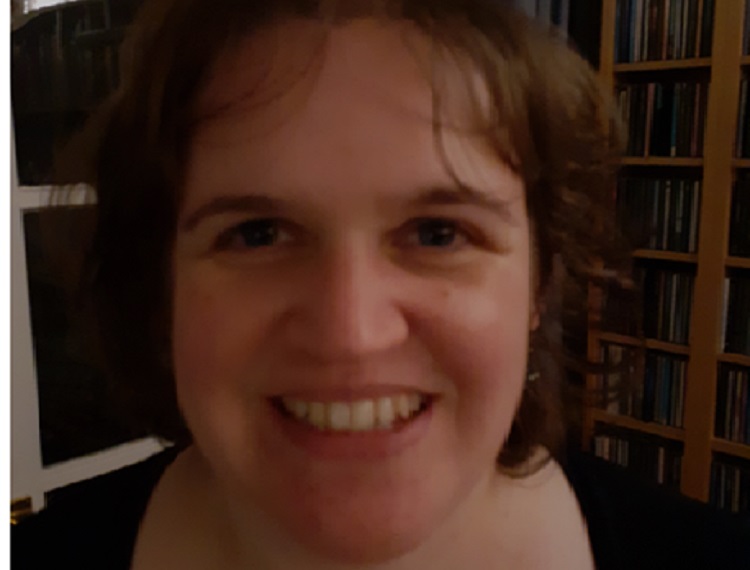
Life deals us many challenges but for someone on the #autistic spectrum, those challenges are increased. I am a woman in my forties and in my late twenties was diagnosed with high functioning Asperger’s. Asperger’s is a hidden disability and lifelong condition. People on the autism spectrum can often be ignored, forgotten or neglected.
Too much emphasis is placed on the negative aspects. People hear the word autism and think they can’t do certain things.
Why not focus on what they can do? You will be pleasantly surprised.
Also has anyone ever stopped to ask someone on the spectrum whether they wish to refer to themselves as having a disorder or condition?
It is up to the individual. For me I prefer condition.
During my GCSE years, it was interesting to learn that while one teacher expected me to change my interests to fit in (thought that if I spoke clothes, hair and make-up, I would make more friends), another said I was a delight to have in the classroom.
Finding and maintaining long term employment was always a struggle, but in March 2010 with help from EADS (Employment and Disability Service), I was given a job as an administration assistant with Northamptonshire County Council (as was).
I have been with the council for over 11 years. In 2019 I began an NVQ Level 3 Business Administration Apprenticeship to assist with broadening my horizons and learning new skills. This proved to be extremely valuable in my role. I gained an overall grade of distinction on completion and started my current role the day after.
Alongside my apprenticeship, I also completed and gained qualifications in Functional Level 2 English and Maths (equivalent to a GCSE Grade C).
Without these I would not have been able to proceed to my apprenticeship end point assessments.
What can be done to help apprentices with autism and/or learning disabilities?
Some of the ways that could help someone on the Autism Spectrum and/or with learning disabilities are:
- Reasonable adjustments
- Large print and easy read documents
- Allowing documents to be used as handouts for apprenticeship end point assessments (using screenshots may not work for everyone).
Simple wording and bullet points:
- Colour coding elements (knowledge, skills, behaviours)
- Apprenticeship buddies/mentors (including apprentice alumni’s)
- Apprenticeship Taster sessions (giving someone a chance to experience a workshop)
- In regards to Apprenticeship End Point Assessment
As part of my apprenticeship end point assessments, I did a knowledge test, project presentation and portfolio interview, but at times I felt a little rushed. I finished ahead of time with my project presentation, but to expand the time as per instruction from my end point assessor, I had to go backwards to give additional information.
If I had been given reasonable adjustments with extra time I wouldn’t have felt quite so pressured. One thing I forgot to do was page number my interview evidence, but luckily for me I had a good memory and could give answers without having to think too much.
If someone on the autistic spectrum is thinking about undertaking an apprenticeship, but unsure about what to expect, a taster session within their chosen field could prove useful, as it would give them first-hand experience about what it is like in that setting.
If they still wish to proceed with the apprenticeship after, then an apprenticeship buddy/mentor even if an alumni apprentice could be considered to be on hand for moral support and guidance. It would also provide reassurance and motivation.
Rhiannon Rees-Jones, Learning Disability Team – Daventry/South Northants Hub, West Northamptonshire Council and Institute for Apprenticeships and Technical Education Apprentice Panel Member.
Achievements:
- 2014 – ERSA (Employment Related Services Association) Awards: Highly Commended for Significant Achievement.
- 2020 – NHCP (Northamptonshire Health Care and Partnership) Apprenticeship Awards: Winner for ‘Behind the Scenes’ in Adult Social Care, and Apprentice of the Year.
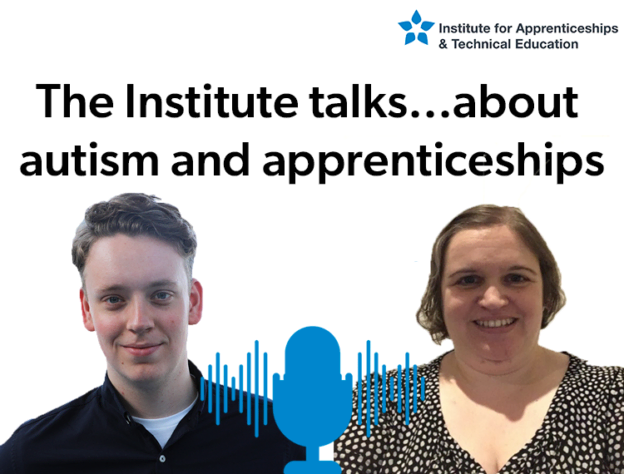
The Institute talks… about autism and apprenticeships
As part of our apprentice panel podcasts, Joel Roach our apprentice panel host interviews new member Rhiannon Rees-Jones.
Rhiannon is a former level 3 business admin apprentice at Northamptonshire County Council.
As a mature apprentice, Rhiannon’s employer gave her the opportunity to do an apprenticeship to help progress her career,
I’m actually glad I did because it gave me the motivation I needed to excel in my current role, it’s never too late to start a career
In the podcast, Rhiannon talks about her diagnosis of Asperger’s in her late twenties and the challenges she has had to overcome and why she wanted to join the apprentice panel
I wanted to be on the panel to share my life and experience, build up a network, and to give another voice for autism and continue raising awareness
To help raise awareness, Rhiannon is working with the Institute to help autistic people in apprenticeships,
I’ve already had a meeting with various panel members and the Institute members and giving them some of my ideas such as easy read material. And then I’m presenting at the meeting where I’ve got a bit of information on the spectrum on what to look out for like the behaviours to recognise. Hopefully, it will build a platform that will feed into the best practice guidance as well so it’s all very interesting
On completion of her apprenticeship, Rhiannon achieved an overall grade of Distinction. She also achieved two Northamptonshire Health and Care Partnership awards, the Apprenticeship Award for ‘Behind the Scenes’ in Adult Social Care and ‘Apprentice of the Year’ 2020.
Podcast Transcript
Joel Roach
Hi, i’m Joel roach an apprentice at Microsoft and i’m also an apprentice panel member and I’ll be hosting today’s podcast for the apprentice panel podcast today. I’m joined by Rhiannon rees-jones welcome Rhiannon would you like to introduce yourself.
Rhiannon Rees-Jones
thank you so my name is Rhiannon Rees-Jones I work as a business support officer for the learning disability team part of what is currently Northamptonshire county council but as of the first of April we’re going to be splitting into two unitaries and I’ll be part of the west Northamptonshire council.
Joel Roach
well thank you so much for joining me today we’ll dive straight into it so I want to ask first of all a couple of questions about your apprenticeship so what is your apprenticeship? what level was it?
Rhiannon Rees-Jones
I recently completed the business administrator level 3 apprenticeship last November.. which was brilliant because it really expanded on my skill set.
Joel Roach
so how did you initially find out about the apprenticeship um and about the fact that there was an opportunity that was open to you?
Rhiannon Rees-Jones
I think the first time was coming across an email from the learning resource hub so they had an information day so I thought i’d wander down and see what all the stores were, saw the apprenticeships and business have been on there i think at first i kind of wandered past a bit and then got called over so i thought well i’ll get the forms and then after a while i was still umming and ahhing so i wasn’t sure whether i’d be able to handle what was involved and whether i’d be have the qualifications to actually apply for it and then i had another email come round from my line manager’s manager with the same information and then i thought why not i might as well do it i’ll pursue it and my line manager my colleagues actually encouraged me as well and i’m actually glad i did because it gave me the motivation i needed to excel in my current role as well
Joel Roach
no that’s amazing to hear um it’s great there was so many people around you that were encouraging you to do this as well
Rhiannon Rees-Jones
yeah i think how a good support network is vital
Joel Roach
now you came into your apprenticeship um having already been established in your career for a few years um so how did you find being a more mature apprentice um how was that experience for you?
Rhiannon Rees-Jones
it actually went a lot easier than i thought it was going to be of course i went in thinking they’re all going to be younger than me and i’m probably going to be the only one that’s older but then i thought well if you can go to university as a mature student why can’t you do the same for an apprenticeship and then when it rather it was age restricted before that kind of put me down having the age limit lifted makes it so much easier as well it’s never too late to start a career put it that way
Joel Roach
no absolutely that’s a yeah that’s a great message to put out there um you sort of mentioned there were lots of you know you weren’t the only mature apprentice on the uh on the course um did you have a sort of special network with them did you have a chance to sort of share ideas and perspectives with them
Rhiannon Rees-Jones
i had the chance to share perspectives with everyone because any one of the mature apprentices in my cohort and the other two are in their twenties but i think the mature apprentice i kind of got in touch with first so i think it was a lot easier and then i’ve done you brought the other two in and i was also able to encourage them to speak up when they needed to
Joel Roach
did you have a lot of learnings to share with the younger apprentices because you’re already established in your career you’ve already got all this experience you’ve picked up along the way
Rhiannon Rees-Jones
yeah i think the first one the first questions we did was to introduce ourselves and say three things that we thought no one else knew it was quite interesting in that respect so it yeah we had one lady who was working in a school one who’s in finance then myself and admin and one he was part of a children’s charity as well so that was interesting to share experiences from that perspective
Joel Roach
yeah definitely and i think it’s always great to have different viewpoints you know regardless there’s a discussion um but you know certainly something i’ve experienced in my apprenticeship when we’ve got different people from different organisations the conversations we have so much more productive and we all learn a huge amount more
Rhiannon Rees-Jones
yeah
Joel Roach
now reading into your biography on the institute’s website you mentioned that you were diagnosed with asperger’s in your late 20s can you tell me a little bit about that
Rhiannon Rees-Jones
yeah so i’ve diagnosed in my late twenties after much debate from my mum i wanted to understand a bit more why i behaved a certain way how my behaviour came across and then it really helped me getting the diagnosis and my therapist was able to talk me through some steps i could take as well i think but it’s still a bit of an adjustment i suppose it’s always challenging but the more i’m able to own the fact that i have this diagnosis the easier it becomes
Joel Roach
yeah you mentioned there was an adjustment there for you was there also an adjustment for your employer when they sort of when you had it when you told them
Rhiannon Rees-Jones
i think there was but not as much as i thought it was going to be they were really embracing really welcomed me and able to talk to me as well
Joel Roach
oh that’s great to hear and how has being autistic affected you in your apprenticeship
Rhiannon Rees-Jones
it started challenging at first but when i started to get overwhelmed i came up with the idea of talking to my line manager and my internal assessor about granting me an extra day study so i was able to do two days today instead of one especially when my studies got interrupted because during one of my study days i was actually called upon them to be a key worker to answer phones
Joel Roach
oh that sounds great what sort of things were you doing as a key worker who were you answering phones for
Rhiannon Rees-Jones
i was asking phones on behalf of providers so care providers so care homes, members of the public just to help them through and pinpoint where they needed to go to
Joel Roach
oh that sounds great doing a bit to support everyone through lockdown yeah and
Rhiannon Rees-Jones
also it doesn’t help that we were sure to start at the time as well
Joel Roach
never ideal
Rhiannon Rees-Jones
see what you missed
Joel Roach
yeah absolutely um so it sounds like you had some good support in place do you think that support is sort of a common theme for most employers or do you think there’s sort of more we could be doing um to support autistic people
Rhiannon Rees-Jones
i think there is a lot more that could be done because they’re more less dependent on the employer how much they actually know about the spectrum so having bite size awareness sessions really helps and actually having done my english functional skills level 2 presentation i was actually then able to broaden my horizons and present to other people across the council the wider council network
Joel Roach
so is that presentation part of your apprenticeship
Rhiannon Rees-Jones
it was yeah i entitled it living in a bubble because that’s how i view the world
Joel Roach
yeah no that’s great you know and amazing that you’ve been able to apply those skills from your apprenticeship you know so immediately into something that’s obviously a personal matter for you
Rhiannon Rees-Jones
yeah definitely
Joel Roach
yeah now you’ve mentioned some of the things you did um working as a key worker but what do you do in your day-to-day role
Rhiannon Rees-Jones
so my day-to-day role can vary again i’m on the phones a lot of the time being the main point of call i also attend various meetings where i have to record minutes um actually on hand then to update spreadsheets and anything that is passed my way from social workers or from the team manager and i’ve actually been called a star and in my last recent supervision my line manager actually said i wish i could give you a pay rise
Joel Roach
oh that’s great to hear that you’re getting that recognition and do you think you’ve been given more responsibility more um tasks since completing your apprenticeship
Rhiannon Rees-Jones
i definitely have been i think that was a way forward in getting this role because i was quite shocked when they said i really think you’d be really good at this and i’m surprised how quickly i’ve actually managed to adapt into the role especially given that my line manager’s been a long-term stick for a while as well so i had to run two hubs instead of the one
Joel Roach
that’s great to hear that they’ve you know felt that you’re up for it and that you’ve felt able to adapt into the role so quickly that’s really positive to hear
Rhiannon Rees-Jones
yeah
Joel Roach
now of course you’ve recently finished your apprenticeship um so i wonder what was your endpoint assessment like
Rhiannon Rees-Jones
well when i first found out i was going to have to do it remotely that was a bit of a shock to the system doing my knowledge test was probably the most daunting aspect of all because i’m used to having someone actually in the room with me and at the start of it i then had to tell my dad can you move my ipad so they can actually see me thinking i’m probably gonna get marked down for that and then getting a 70% was absolutely brilliant but then when i came to do my portfolio interview and my presentation the end-point assessor was really welcoming and actually allowed me to backtrack a bit as well and i came out with an overall distinction which was amazing on top of my other achievements
Joel Roach
oh that’s amazing to hear congratulations um now i suppose one question is as we sort of move to a more digital way of working are there considerations employers should be making for autistic employers employees
Rhiannon Rees-Jones
that’s a very interesting question i think again it’s more listening ask them how they’re feeling on your regular basis and they can maybe set up like a whatsapp group or something that they can be in touch with them but it’s different for every person but it’s kind of a step-by-step process i don’t know how they feel about whether they prefer to be in the workplace or at home but there’s always ways you can accommodate for both
Joel Roach
yeah absolutely and i think obviously we need to be careful of everyone rushing to either be completely at home or completely at work um it seems like we’re about to find a good in between um so hopefully we’ll get we’ll get there soon
Rhiannon Rees-Jones
yeah
Joel Roach
um now coming back to your epa did you need or make use of any extra preparation or support resources to do that
Rhiannon Rees-Jones
yeah my like my internal assessor so i had to give me quite a bit of work to do so she’d advise me where i could add stuff in or i could take stuff out and then as we went along towards the end of it she was then like well we can miss that assignment out that’s not really relevant anymore you know she’s really useful and i would allow me to put screenshots in and then she was very impressed with my portfolio of evidence by the end of it the only thing i forgot to do is page number my evidence
Joel Roach
oh there’s always something you forget there’s always one thing yeah but well you came out of it with a distinction so it all went well in the end
Rhiannon Rees-Jones
it did yeah that was not the only thing that came out of having done the apprenticeship because i also won two awards which was the northamptonshire health and care partnership awards one was for behind the scenes at adult social care the other one was apprentice of the year 2020.
Joel Roach
oh that’s amazing congratulations um was there anything specific that you did for those awards or is it just recognizing the amazing work you were already doing
Rhiannon Rees-Jones
my internal assessor just approached me one day and said i want to nominate you for this award and then asked me if it was okay and then having got that award i was then nominated by the chief executive office to attend the royal garden party which then of course was cancelled due to covid but hopefully in the future i may still get a chance to attend that as well
Joel Roach
that’s amazing and it’s great you’re getting that recognition and that people are noticing all the amazing things that you’re doing
Rhiannon Rees-Jones
yeah i just want the same for everyone else on the spectrum as well
Joel Roach
yeah absolutely i guess on the topic of amazing things that you’re doing you’re one of our newest recruits to the apprentice panel so what made you apply to join
Rhiannon Rees-Jones
i applied to join basically to expand my network to give another voice for autism and continue raising awareness and plus it’s not every day you get an opportunity to then advise government officials ministers of state and the ways forward so i think it’s always changing
Joel Roach
yeah absolutely and you know i know that you’re working with the institute on raising awareness for autism in apprenticeships so i wonder how do you plan on doing this
Rhiannon Rees-Jones
they’ve already had a meeting with various panel members and the institute members and giving them some of my ideas such as easy read material large material and then i’m presenting at the meeting where i’ve got a bit of information on the spectrum what to look out for like the behaviours to recognize and then hopefully build a platform and it will feed into best practice guidance as well so it’s all very interesting
Joel Roach
oh that sounds great and have you had a good reception so far from the uh from the team from the panel from the people you’ve spoken to if they’ve been receptive to all your ideas
Rhiannon Rees-Jones
they’ve been very receptive actually yeah
Joel Roach
oh that’s fantastic to hear that’s great i mean it seems like there’s people that are willing to listen and people that are willing to learn um so it’s amazing that you’ve come along to um to do the speaking and to give that perspective
Rhiannon Rees-Jones
yeah and it also gives me a chance to learn from them as well it’s all across sharing experiences
Joel Roach
yeah absolutely and i’m sure there’s going to be a huge amount of learning going both ways um so we’re very grateful to have you on the on the panel
Rhiannon Rees-Jones
i’m very grateful to be here too
Joel Roach
um so we’ll finish off with um any advice you have um for potential apprentices so what would you sort of say to people who are thinking about doing an apprenticeship
Rhiannon Rees-Jones
i just say it’s not as daunting as you think it’s going to be think about what you love to do where you want your career to go same for employers ask them what they’re wanting to do like the hobbies their interests and it’s basically having regular contacts and maybe having some bite-sized sessions just to learn a little bit about what’s involved
Joel Roach
no that sounds great
Rhiannon Rees-Jones
be yourself and love yourself as well because you can’t love yourself have you expected everyone else too
Joel Roach
yeah absolutely um and do you have any specific advice for people for autistic people who are doing or considering an apprenticeship
Rhiannon Rees-Jones
i think it’s a really good route for as long as you get enjoyment out of it that’s worth the effort anything and you can always have a buddy on hand just to advise if you need to just to speak to it does get overwhelming at times i remember the amount of times i was left in tears because i thought i couldn’t do it and then i got the encouragement that i needed even from my cohort the other apprentices
Joel Roach
yeah absolutely i think having having someone there that you can lean on and go to whenever it gets tough because i think inevitably it will always get tough for anyone um is always helpful just to have someone you can uh go to with the the hard questions and the uh what the need to share
Rhiannon Rees-Jones
yeah yeah it’s not always easy for an autistic person to do that just knowing there’s someone there who’s there when they need them
Joel Roach
is there is there steps that employers tutors training providers are the steps they can take to sort of reach out and make that first contact if it’s harder for autistic people to do to do that
Rhiannon Rees-Jones
you can always provide an incentive to motivate them and praise them on the work they’re doing well suggest easy points but always make sure you use bullet points and clear concise information as well because if you get overwhelmed it’s very easy for an autistic person to kind of digress and say i kind of own little world they lose sight of what they do they lose concentration as well
Joel Roach
yeah absolutely and is there anything that employers can do to attract autistic people or to remove any obstacles to autistic people from applying to roles that they might see from an advertisement or from an organization that might make them sort of go oh no i can’t work there
Rhiannon Rees-Jones
i think again it’s more simple isn’t it like in the job description they make it more simplified maybe some like easy read pictures or something just to kind of symbolize what they’re asking for and give them a chance to ask questions as well you could even go to when they they have recruitment days every now and then as well so or maybe have someone who’s on the spectrum already working in that role just to tell them a bit about what’s involved as well
Joel Roach
yeah absolutely i think organizations can so often get bogged down in all of their jargon and sort of the terms that they’re all familiar with using but no one else is so it’s great to put everything in you know for everyone um really that’s thinking of applying to putting things into simple terms that everyone can understand and and sort of process um is always going to be helpful
Rhiannon Rees-Jones
yeah definitely and sometimes large print helps as well
Joel Roach
so rhiannon a bit of sort of advice for people that are listening to this what could people do if they go into work tomorrow how can they make their employers their organizations a better place for autistic people to work
Rhiannon Rees-Jones
they could talk to their line manager or the supervisor or even a colleague you’ll probably find that some of your colleagues may be living with someone who’s on the spectrum or have be on respect to themselves you could arrange for information stands i know that at the council before we’ve had stands in the atrium where people can go past and get information that way anything and everything you could also one of the things that i did was to do articles on the informer magazine which is a council online magazine that all employees get to access which is quite good and there’s also various poems and quotes and you’re seeing the various badges as well as an autism awareness badge looks a bit like a jigsaw so i just do anything and everything i can to raise awareness
Joel Roach
that’s great advice and hopefully uh hopefully the listeners um of this will take that away and put it into action in their own companies
Rhiannon Rees-Jones
yeah
Joel Roach
well that’s all we have time for in today’s episode i want to say a huge thank you to rhiannon today for taking the time to tell us about her experiences and sharing her perspective so thank you everyone for listening please look out for the next episode of our podcast series thank you
You can find more information about the apprentice panel on the Institute’s website.


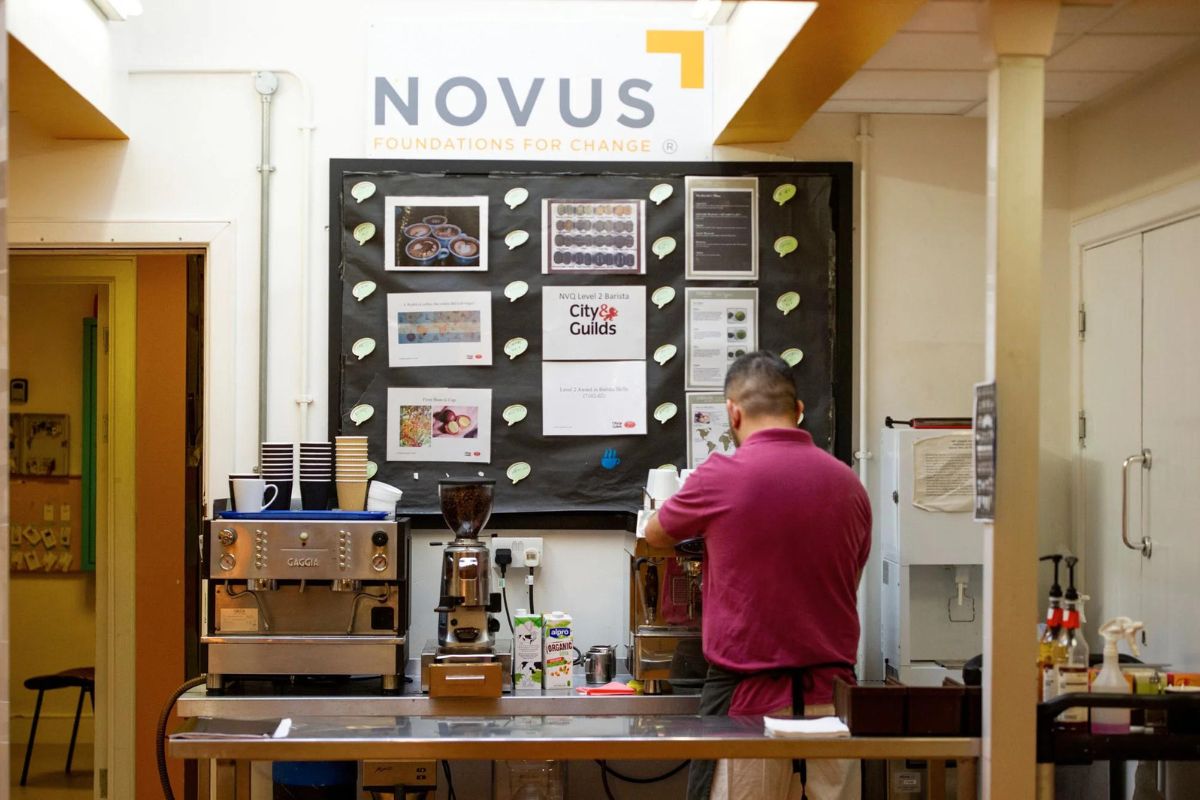



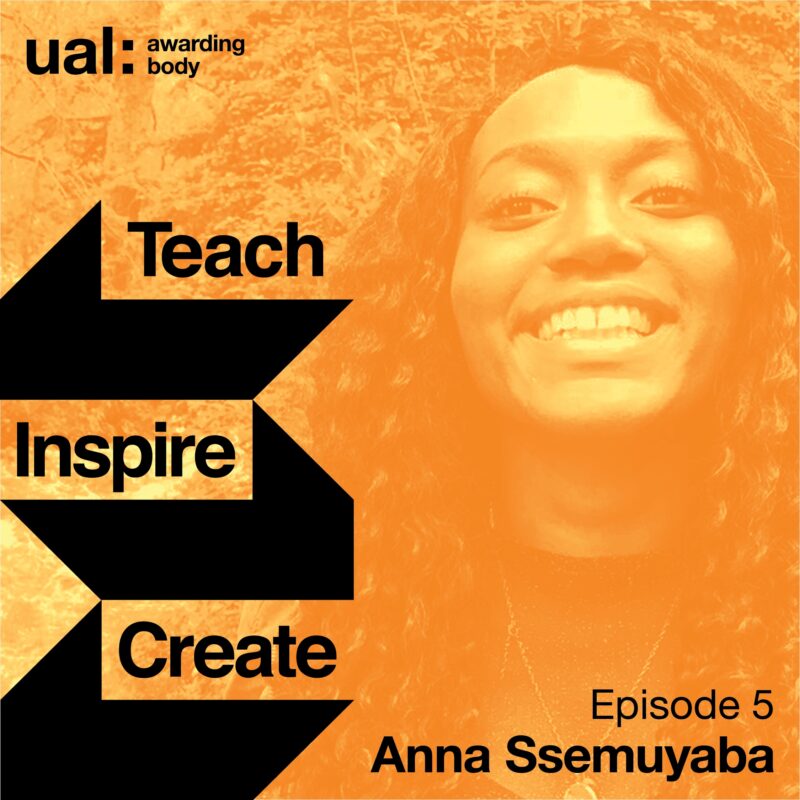


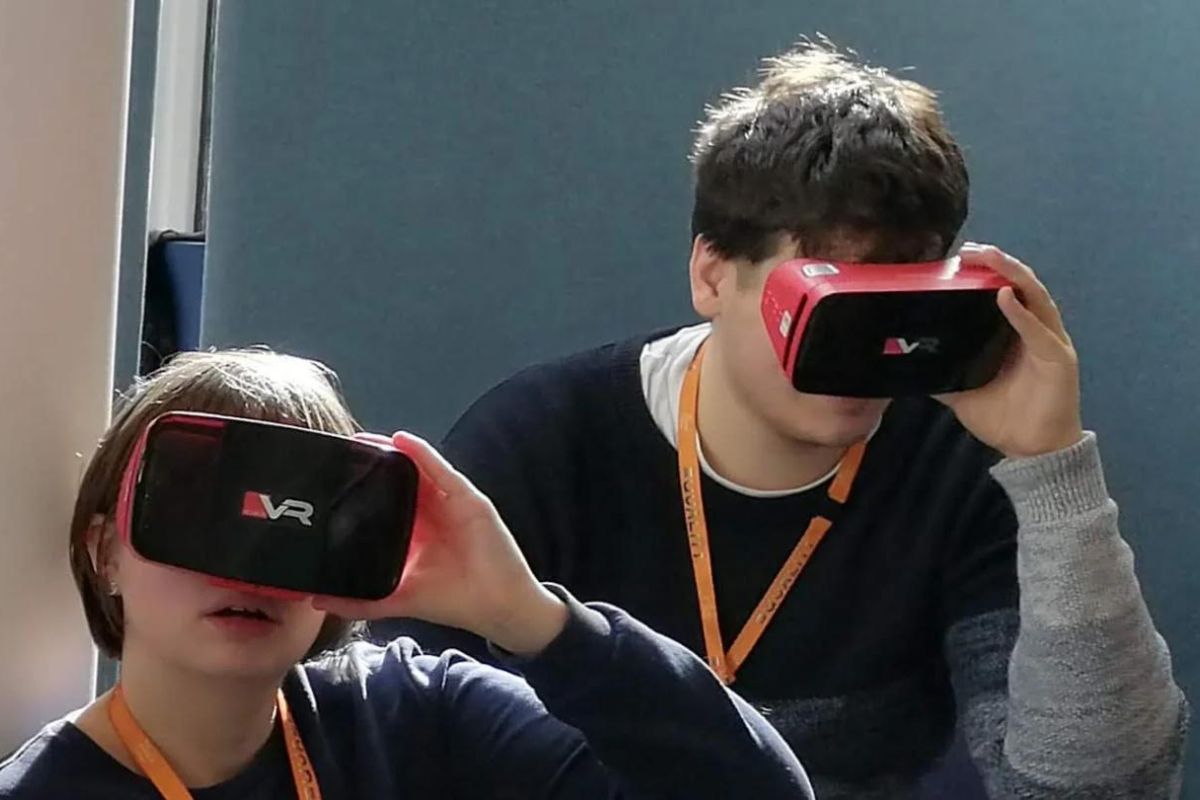


Responses